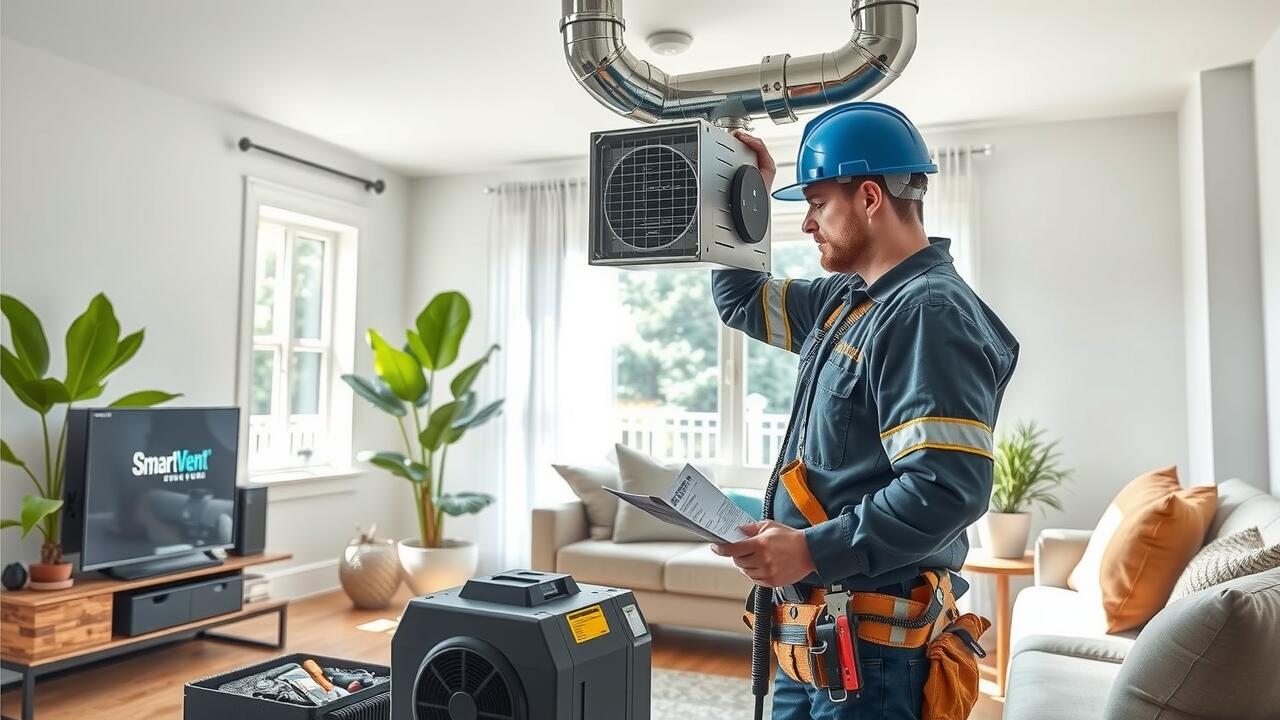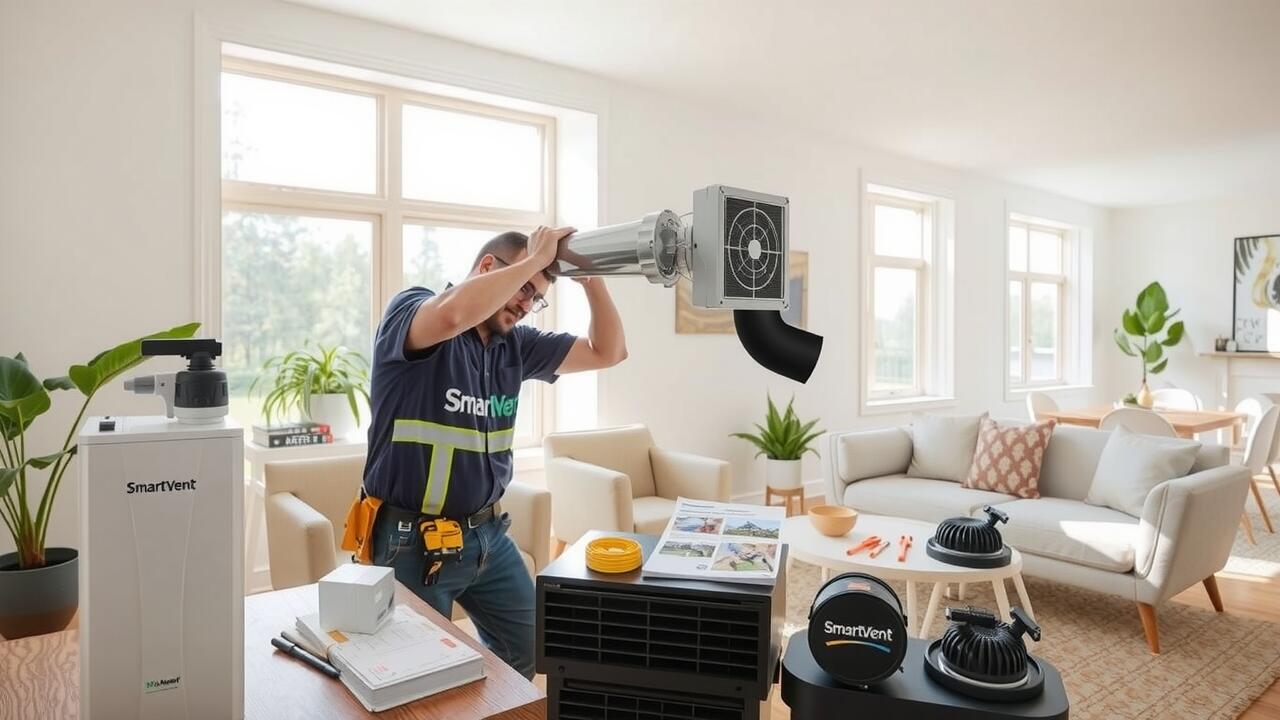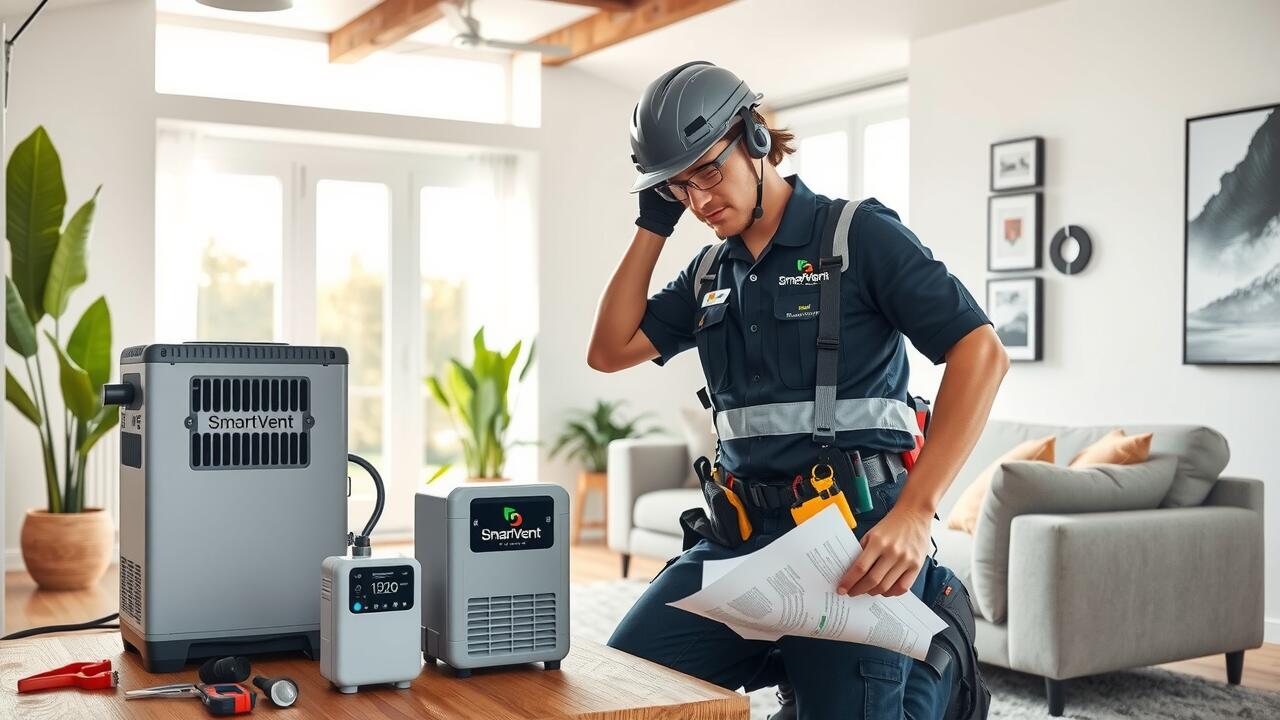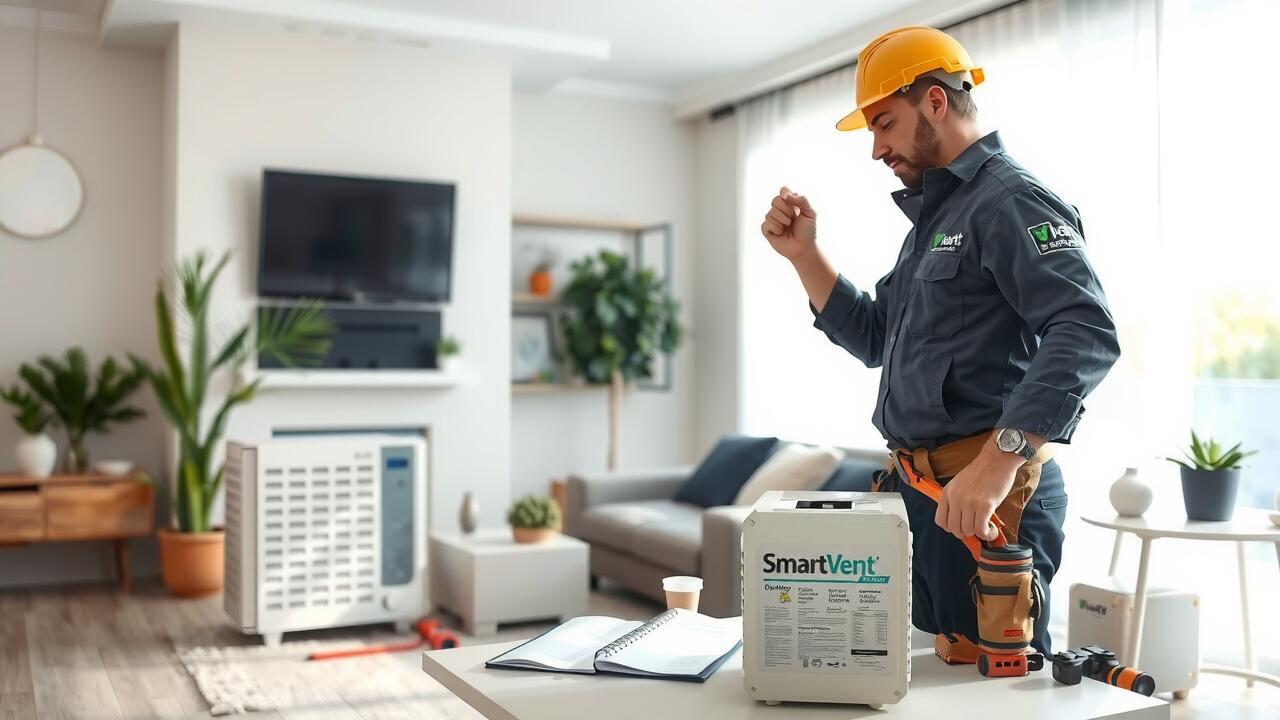
Table Of Contents
Energy Efficiency and Savings
Investing in a ventilation system can significantly enhance a home's energy efficiency. A properly installed system, like SmartVent ventilation installation in New Zealand, ensures optimal airflow while minimising energy wastage. This not only contributes to a healthier indoor environment but also helps regulate temperature, reducing the reliance on heating and cooling systems. Over time, the efficiency of these systems translates into lower energy consumption and noticeable savings on utility bills.
The financial benefits of installing an efficient ventilation system extend beyond initial savings. By choosing SmartVent ventilation installation in your home, you can enjoy improved air quality which may lead to fewer health-related issues. Healthier occupants typically mean less spending on medical expenses, creating long-term financial advantages. Furthermore, with energy costs continuously rising, investing in an effective ventilation solution proves to be a wise choice for homeowners looking to protect their wallets while boosting comfort and well-being.
Impact on Utility Bills
Proper ventilation can significantly impact utility bills, allowing homeowners to achieve a more energy-efficient living environment. A SmartVent ventilation installation in your home helps regulate temperature and humidity levels. By ensuring that exhaust air is effectively removed and replaced with fresh air, your home becomes less reliant on heating and cooling systems. This adjustment can lead to lower energy consumption over time.
Homeowners who invest in a SmartVent ventilation installation in New Zealand often notice a reduction in their monthly utility expenses. Improved air quality can mitigate the need for additional heating, particularly during colder months, leading to substantial savings. Additionally, a well-ventilated home can extend the lifespan of appliances, reducing overall maintenance and replacement costs.
Choosing the Right Contractor
Choosing the right contractor for ventilation system installation is crucial for ensuring optimal performance and compliance with local regulations. When considering options, look for professionals who have experience specifically with SmartVent ventilation installation in residential and commercial settings. It’s important to check for relevant qualifications and certifications. A contractor with a solid reputation will offer insights into the latest technologies and best practices in the industry, helping you make an informed decision.
Additionally, assess potential contractors based on customer reviews and testimonials. Engaging with past clients can provide valuable information about their reliability and quality of work. A good contractor should also be transparent about their pricing structure and provide a detailed quote for SmartVent ventilation installation in your space. By taking these steps, you can ensure that you select a qualified professional who will meet your ventilation needs effectively.
What to Look for in a Professional
When selecting a professional for your ventilation system installation, it is crucial to verify their qualifications and experience. Look for a contractor who has completed relevant training courses and holds certifications recognised within the industry. A proven track record in installing similar systems is also essential. Asking for references from previous clients can give you insight into their reliability and work quality.
Specialisation in SmartVent ventilation installation in particular can provide added assurance of their expertise. It is advisable to review online feedback and ratings to gauge customer satisfaction. Additionally, ensure that the contractor is familiar with local building codes and regulations. This knowledge is vital to ensuring compliance and avoiding potential issues during the installation process.
Permits and Regulations
Installing a ventilation system in New Zealand often requires adherence to specific local and national regulations. These regulations are designed to ensure that installations meet safety standards and benefit the environment. When considering a SmartVent ventilation installation in your home, it’s essential to check with your local council to determine any necessary permits and approvals. This can vary by region, so understanding the local requirements will help streamline the installation process.
In addition to local regulations, it is important to consider the Building Code requirements that govern ventilation systems. Compliance with these codes ensures that your home maintains adequate airflow while protecting against moisture and mould growth. For a SmartVent ventilation installation in New Zealand, working with a qualified contractor who is familiar with these regulations will help to ensure that the project meets all legal obligations and is completed without unnecessary delays.
Legal Requirements in New Zealand
In New Zealand, the installation of ventilation systems is subject to specific legal requirements designed to ensure safety and compliance with building standards. These regulations often encompass aspects such as energy efficiency, air quality, and noise control. When considering a SmartVent ventilation installation in a residential or commercial property, it is crucial to be familiar with the Building Code and local council bylaws. These guidelines stipulate that any new systems must meet certain standards that promote healthy indoor environments.
To ensure compliance, property owners may need to obtain relevant permits before commencing installation. This process can vary depending on the location and type of building, making it essential to consult with local authorities. Engaging a professional who has experience with SmartVent ventilation installation in your area can help navigate these legal requirements efficiently. Thorough understanding of the regulations will not only facilitate a smoother installation process but also contribute to the long-term durability and effectiveness of the ventilation system.
FAQS
What factors influence the cost of installing a ventilation system?
The cost of installing a ventilation system can be influenced by factors such as the size of the property, the type of system chosen (e.g., central, ducted, or heat recovery systems), the complexity of the installation, and any necessary modifications to existing structures.
Are there ongoing costs associated with a ventilation system?
Yes, there are ongoing costs associated with a ventilation system, including energy consumption, regular maintenance, and potential filter replacements. These costs can vary based on the system type and usage.
How can a ventilation system impact my energy bills?
A well-installed ventilation system can improve energy efficiency by reducing the need for heating or cooling, which can lead to lower utility bills. However, the impact on energy bills will depend on the specific system and its usage.
Do I need a permit to install a ventilation system in New Zealand?
Yes, in most cases, you will need a permit to install a ventilation system in New Zealand. It's essential to check local regulations and consult with your contractor to ensure compliance with all legal requirements.
How do I choose the right contractor for my ventilation system installation?
When choosing a contractor, look for qualifications, experience, and positive customer reviews. Ensure they are licensed and knowledgeable about local regulations and can provide a detailed quote for the installation.


